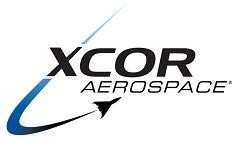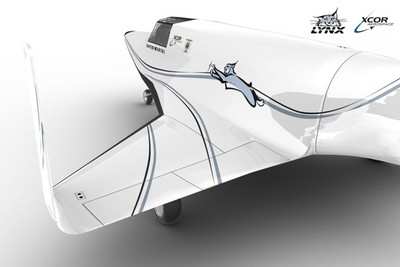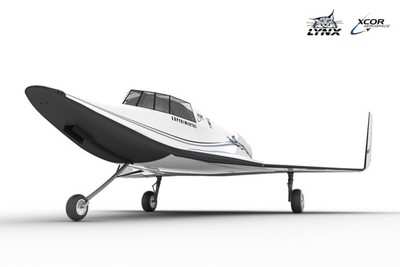Will Set Schedules For Experiments To Fly Aboard Lynx
Suborbital Spaceplane
As the 2011 Next-Generation Suborbital Researchers Conference
(NSRC) opened in Orlando, FL, XCOR Aerospace announced its initial
team of suborbital payload integration specialists who will begin
taking orders and facilitating experiment development and
integration for commercial, educational and government suborbital
research missions aboard XCOR's Lynx reusable suborbital launch
vehicle. The Lynx is expected to provide three to four minutes of
micro-gravity and/or exposure to the harsh environment of space and
the opportunity to investigate largely unknown regions of our upper
atmosphere critical to environmental studies in as many as four
flights per day.

The company says the payload integrators represent both large,
established companies and start-up space entities run by seasoned
executives as well as entrepreneurs from places like Asia, Europe,
North America, and South Africa. XCOR will be adding additional
specialist firms to the network in the coming months.
The first group of XCOR Lynx payload integration specialist
firms include the following (in alphabetical order):
- The African Space Institute of Durban, South Africa.
- Cosmica Spacelines of Toulouse, France.
- NanoRacks of Lexington, KY and Washington, D.C.
- The Southwest Research Institute (SwRI) in Boulder, CO.
- Space Chariots in Oxon, England.
- Space Experience Curacao of the Netherlands and the Caribbean
island of Curacao.
- Spaceflight Services in Tukwila, WA, Valencia, CA, and
Huntsville, AL.
- Yecheon Astro Space Center, Yecheon, South Korea.
"This is a win-win for all of us," said Jeff Greason, XCOR CEO.
"XCOR will focus on what we do best, which is build and operate
rocket powered vehicles, while our payload integration specialists
will do what they do best, which is work closely with scientists
and researchers and use their collective expertise to prepare
payload missions to do real work in space."

Each of the announced entities has entered into a Memorandum of
Understanding (MOU) or contractual relationship with XCOR Aerospace
creating a robust initial network of sales and payload integration
specialist firms for the science, engineering, and education
missions that will be flown on XCOR's Lynx suborbital reusable
launch vehicle. Some see Lynx as a strong compliment to their
existing business models or as a tool to develop critical national
science and education capabilities or inspire new ways of thinking
and execution of space based research.
The XCOR payload integration specialist firms will support a
variety of scientific, educational and engineering objectives
including: atmospheric science, physics, microgravity research,
planetary science, earth observation, life sciences, education and
public outreach, and many others. Some firms such as NanoRacks
already have capabilities on orbit at the ISS and will use Lynx as
a qualification platform, others are teamed with launch services
providers who have other on orbit resources like new commercial
cargo and crew systems who will be using Lynx for pre-cursor
missions.
Each payload integration specialist firm will help facilitate
and provision flight services on the Lynx by ensuring end users
understand the packaging, environmental, safety, operational flight
profile(s) and interface (physical, electrical and data)
requirements of the Lynx for both automated experiments not
requiring user intervention during flight, and those experiments
when the scientist accompanies the payload to the edge of space.
The integrators will provide a variety of additional value added
services depending on their individual service offering and
customer needs, including, but not limited to fabrication, test and
qualification of experiments for the Lynx environment.

XCOR will be responsible for: (1) developing and periodically
updating the Lynx interface control document, payload user's guide
and other payload related processes and procedures in consultation
with the payload integration specialists, end customers and
regulators; (2) operating an annual Lynx payload user's group
conference to solicit feedback and promulgate best practices across
the payload integrators network and user community; (3) addressing
any specific non-standard needs identified by payload integration
specialists and their customers such as special flight trajectories
or unique vehicle integration needs; (4) any special licensing or
regulatory actions pertaining to the flight; and (5) with the
integration specialist and customer, performing a final safety and
pre-flight review meeting before the mission is flown and a
de-briefing of the mission after flight.
On flight day, XCOR will receive payloads from the integration
specialist (and/or customer), place it into one of the four cargo
carrying locations on the Lynx, fly the payload on the mutually
agreed upon trajectory, and return the payload to the researcher or
payload integrator (as directed) within minutes of touchdown. From
temporary airport-side storage or labs all the way to space and
back to a runway-side lab is projected take under 30 minutes on a
nominal flight with Lynx - a step function improvement over any
capability available today and a strong compliment to other
available systems.
Andrew Nelson, XCOR's Chief Operating Officer added, "with the
lowest cost of operations in the marketplace, ability to fly
multiple times daily from sites around the world using our
affordable 'wet lease' customer model, and our global reach with
these trail blazing space entrepreneurs, Lynx is poised to become
the de facto standard in suborbital reusable launch vehicle
payloads for scientific, education and engineering purposes, and
create high paying technical job clusters not only in the US, but
everywhere Lynx operates."

Depending upon customer needs, the Lynx can carry as small as a
1kg (or smaller) payload as a "ride share" or "secondary payload",
and up to a 650kg large "primary" mission payload. Payloads may be
carried as ride share or primary payloads in the Lynx pressurized
cabin or be exposed to the unpressurized and harsh conditions of
space. In the future, small nanosatellites may also be launched
from the Lynx vehicle using an expendable upper stage launcher of
XCOR design allowing innovative low earth orbit satellite
applications, constellations, and the testing of new and advanced
technologies to be used on larger satellites and manned flight
vehicles.
 ANN's Daily Aero-Linx (04.13.24)
ANN's Daily Aero-Linx (04.13.24) ANN's Daily Aero-Term (04.13.24): Beyond Visual Line Of Sight (BVLOS)
ANN's Daily Aero-Term (04.13.24): Beyond Visual Line Of Sight (BVLOS) Airborne 04.09.24: SnF24!, Piper-DeltaHawk!, Fisher Update, Junkers
Airborne 04.09.24: SnF24!, Piper-DeltaHawk!, Fisher Update, Junkers Aero-News: Quote of the Day (04.14.24)
Aero-News: Quote of the Day (04.14.24) ANN's Daily Aero-Term (04.14.24): Maximum Authorized Altitude
ANN's Daily Aero-Term (04.14.24): Maximum Authorized Altitude






